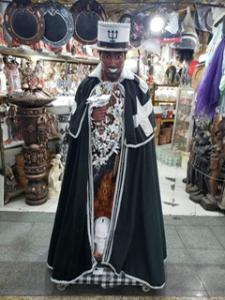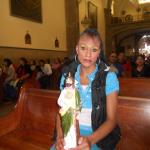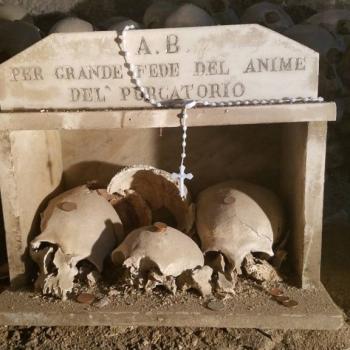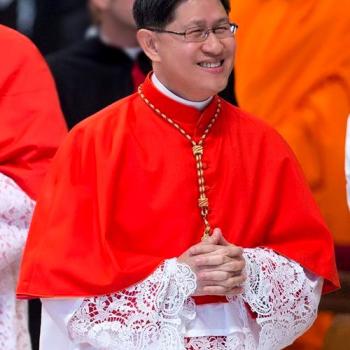
Umbanda is a syncretic Brazilian religion that originated in Rio de Janeiro in the 1920s. Combining elements of African, Catholic, and Spiritist beliefs and practices, Umbanda has developed into a unique religion with its own rituals, spiritual entities, and cosmology. Umbanda emerged in the context of Brazil’s rich cultural diversity, characterized by the second largest Black population on the planet after Nigeria, Indigenous peoples, citizens of European descent and millions of multiracial individuals. During the late 19th and early 20th centuries, Afro-Brazilian religious practices and beliefs underwent significant transformations due to the abolition of slavery in 1888 and the influence of Kardecist Spiritism brought back to Brazil by elites who attended universities in France. These cultural and spiritual influences converged to form the foundation of Umbanda.
While all religions contain syncretic elements, Umbanda stands out for being a unique amalgam of three discrete religious traditions. It combines the spirit possession of Macumba, the main Afro-Brazilian religious practice in early 20th-century Rio de Janeiro, Catholic prayers and rituals, and the emphases on faith healing and communication with the souls of the deceased of Kardecist Spiritism. The syncretic nature of Umbanda allows for a flexible and inclusive approach to spirituality, accommodating a diverse range of beliefs and practices that vary widely along the lines of social class, race, and region.
A defining feature of Umbanda, incorporated from both Macumba and Spiritism, is the practice of mediumship, which involves individuals, known as mothers and fathers-of-the-saints, serving as conduits for spirit guides (guias in Portuguese) to communicate with believers who are usually seeking to resolve personal problems mostly related to health, wealth, and love. Mediums, also known as “cavalos” or “horses” because they are “ridden” by the spirits, undergo a process of initiation and training to develop their channeling abilities and establish a connection with the spiritual realm.
There are three main types of spirit guides that are channeled by mediums. Caboclos are the spirits of Indigenous Brazilians known for their powers of healing and protection. They often manifest in mediums smoking cigars and speaking “broken” Portuguese. Sete Flechas (Seven Arrows) is one of the more popular of several different advocations of Caboclos who are uniformly represented as Apache and Sioux due to the influence of old Hollywood Westerns on Brazilian popular culture.
Pretos Velhos or Old Blacks are the spirits of enslaved Africans who miraculously lived to an old age when the average life expectancy for them was an appalling 21 years! Pretos Velhos are sought out for sage advice and healing. Whereas Caboclos prefer big stogies, Pretos Velhos manifest smoking corn cob pipes. That two of the three main types of spirit guides manifest smoking tobacco highlights the curative powers of the plant that is native to the Americas and was used by many Indigenous groups in healing rituals.
Exus or liminal tricksters are the third main type of spirit guides. They represent the darker side of Umbanda and are depicted as street hustlers, bare-breasted women, the devil, and as menacing looking human skeletons. Associated with crossroads and cemeteries, they are invoked for matters of protection, harm to others, financial gain, and lust and love. Pomba Gira, who heads up a phalange of female exus, is the matron saint of Brazilian sex workers and her spirit often manifests accordingly with raunchy behavior.
As a scholar of religion I have been intrigued by Umbanda since first attending a gira in the Amazonian city of Belem while I was doing dissertation research on the Pentecostal boom in 1993-94. I had to go under the cover of darkness with an anthropologist from the Federal University of Para lest my Pentecostal contacts find out and banish me from their evangelical world.
What really struck me that night and in general is the paramount importance of the spirit guides, except for the exus, as agents of healing. More often than not, those who seek the guidance of the spirits are looking for healing, be it of physical, mental or spiritual affliction often caused by the stress of life on the urban margins. The etymology of the word “Umbanda” captures the paramountcy of faith healing as it derives from the Bantu word “to cure.” Umbanda appeals to millions of Brazilians who seek to restore their health but without the often radical lifestyle changes demanded by Pentecostalism.













